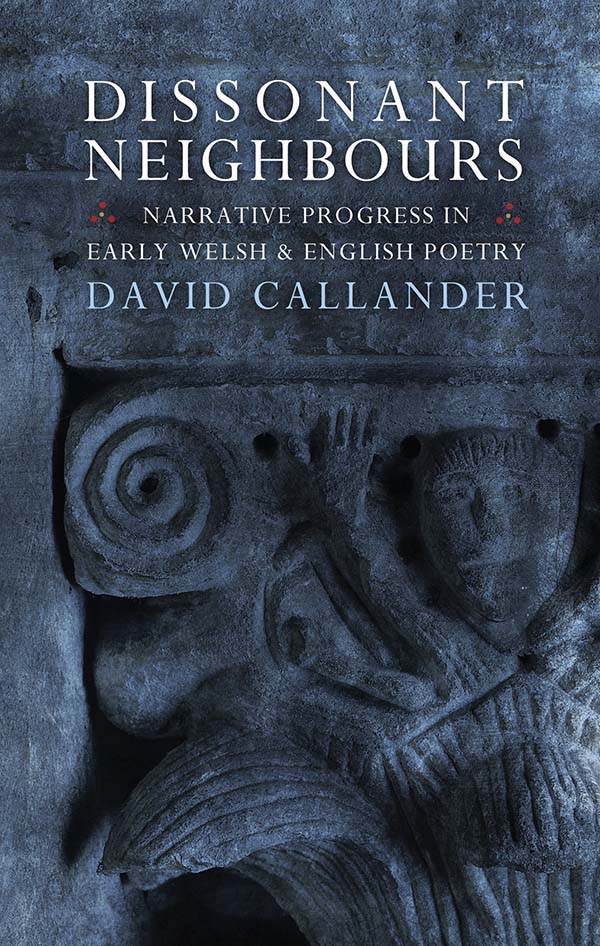Dissonant Neighbours
Narrative Progress in Early Welsh and English Poetry
Author(s) David Callander
Language: English
Genre(s): Medieval
- April 2019 · 320 pages ·216x138mm
- · Paperback - 9781786833983
- · eBook - pdf - 9781786833990
- · eBook - epub - 9781786834003
Dissonant Neighbours compares early Welsh and English poetry up to c.1250, investigating why these two neighbouring literatures describe similar events in markedly different ways. Medieval Welsh and English texts were subject to many of the same Latin and French influences, and we see this in the stories told in the poetic traditions; comparing and contrasting the different approaches of Welsh and English poetry offers insight to the core narrative trends of both. How, where and why did early Welsh and English poets deploy narrative? These are key questions that this book seeks to answer, providing a groundbreaking new study which treats the Welsh and English poetry in an equal and balanced manner. It contributes to ongoing debates concerning multilingualism and the relationship between Welsh and English literature, dividing into four comparative chapters that contrast a wide range of early Welsh and English material, yielding incisive new readings in poetic tradition.
Acknowledgements
Abbreviations
Preface
Introduction
Chapter 1: Battle
Chapter 2: Narrative at the End of the World
Chapter 3: Retelling Christ’s Birth and Early Life
Chapter 4: List and Narrative
Conclusions
Bibliography
Appendices
Index


